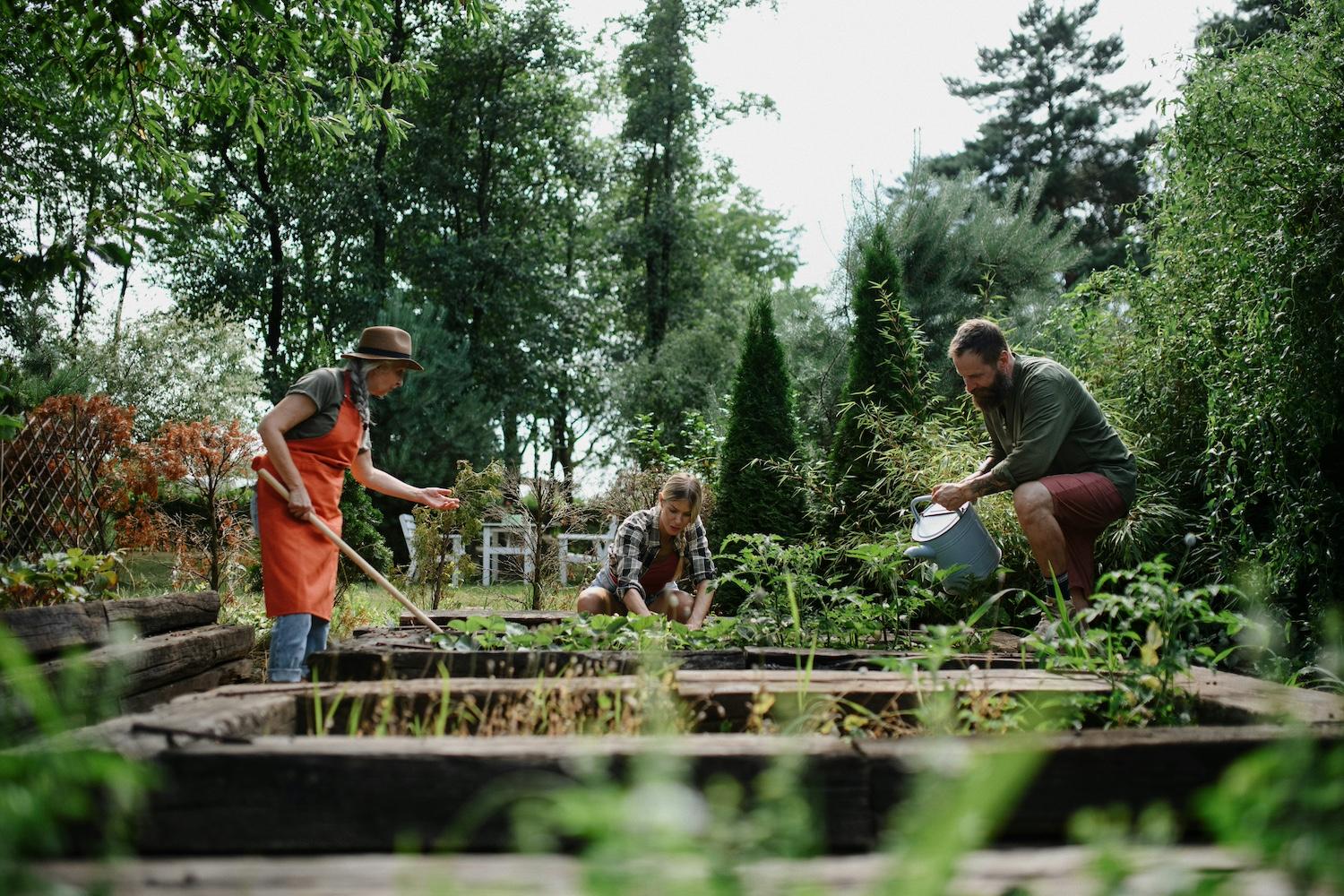
(Image: Getty Images/Unsplash)
Composting isn’t just an effective way to turn food waste into plant food. When scaled across communities, this backyard pastime can be an economic and educational powerhouse. Just ask the members of the Community Composter Coalition, a network of more than 350 schools, urban farms, bike haulers and other local organizations that collect food scraps from their neighbors and turn them into compost.
Organized by the nonprofit Institute for Local Self-Reliance, the coalition includes big programs in cities like New York, San Diego and Uttar Pradesh, India, alongside rural programs across the United States, Canada, the Caribbean and Asia. Each provides food waste collection to neighbors who wouldn’t have it otherwise, while creating a valuable soil amendment and supporting local jobs.
“They're producing a great product that is used in local soil,” said Clarissa Libertelli, manager at the coalition. “It's contributing to a greener neighborhood, local food production, strengthening local food systems and climate resiliency in neighborhoods.”
Many member organizations use the compost they produce for social and environmental justice like helping grow fruits and vegetables in food deserts, restoring contaminated land, and employing people with criminal justice histories, she said. The community composters also often run outreach, education and youth engagement programs.
Though they may seem small-time compared to municipal programs that collect thousands of pounds of food scraps a day, the Institute’s research shows community composting can contribute just as much — if not more — to local economic growth.
“In terms of economic benefits, it creates local green jobs, it allows you to invest in a local green economy,” Libertelli said. “We've shown that community composting employs more people for the amount of waste diverted than does industrial composting.”
The welcomes everything from community gardens run by volunteers to local composting businesses to government entities, as long as their composting programs are run locally and in a decentralized manner, Libertelli said.
L.A. Compost, for example, grew from volunteers on bikes to a hub-and-spoke model operating throughout Los Angeles that kept 4 million pounds of organic waste from going to landfills and industrial composting sites last year.
Over in New York City, Libertelli’s own compostables are picked up by BK Rot, a youth-led organization that does so via bike. “Although they lost hundreds of clients, I believe, when smart bins were rolled out in the city because people didn't realize what they were putting in there might not even get composted,” she said, referring to the food scrap drop-off bins scatted throughout New York City, the contents of which often end up in anaerobic digesters. “They still have a really strong subscriber base because people see that they're doing community events, they're putting out educational videos. And now they became part of this new cohort of funding, so they're able to continue surviving.”
Despite the upsides, community composters often face technical, regulatory and financial challenges, Libertelli said. Coupled with the intensity of manual labor and the nature of public service, organizers end up feeling burned out and isolated.
That’s where the Institute for Local Self-Reliance’s Community Composter Coalition comes in. It offers support through networking events, educational resources and webinars. It hosts an online platform where members can connect, organize, share knowledge and resources, and reach out for information, guidance and problem-solving.
The coalition surveys community composters each year to gauge the movement’s progress. While not all of the respondents are members of the coalition, most are, Libertelli said. Between 2022 and 2023, survey respondents composted 80 percent more food waste compared to the year before, and their client bases went up by 69 percent. In last year’s survey, three-quarters said they are scaling up their operations, "so there's definitely a lot of growing going on,” she said.

Riya Anne Polcastro is an author, photographer and adventurer based out of Baja California Sur, México. She enjoys writing just about anything, from gritty fiction to business and environmental issues. She is especially interested in how sustainability can be harnessed to encourage economic and environmental equity between the Global South and North. One day she hopes to travel the world with nothing but a backpack and her trusty laptop.














